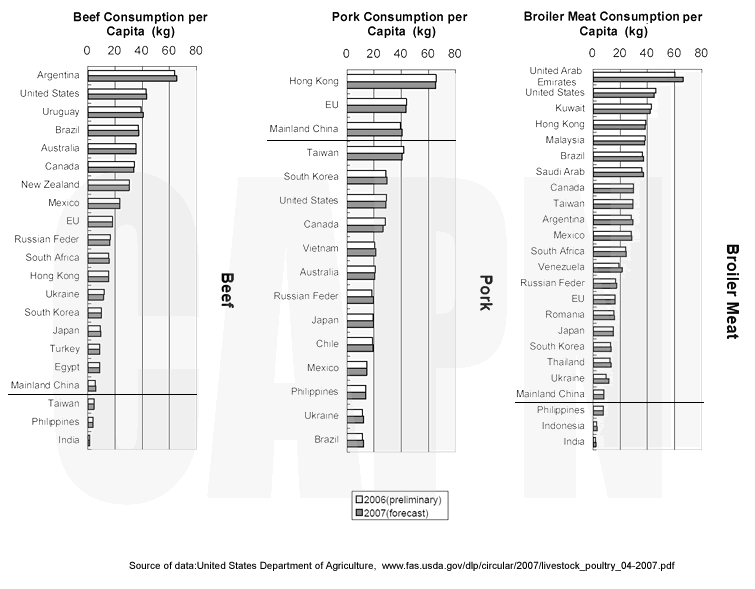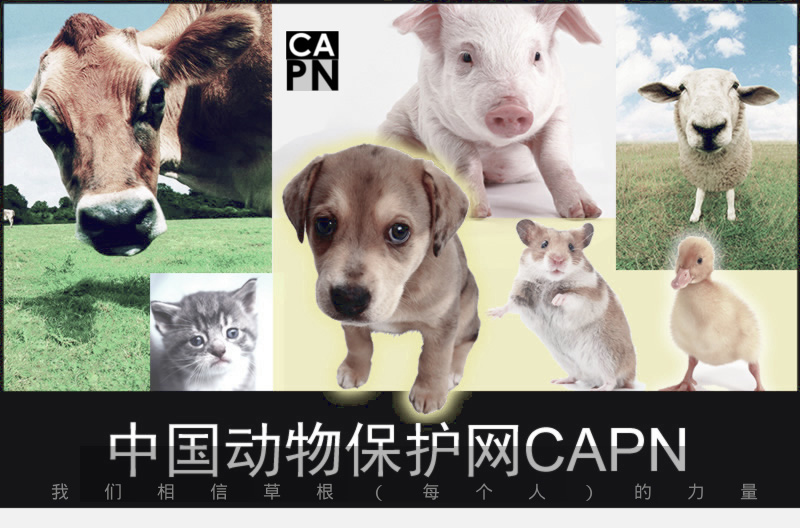Chinese
Animal Protection Network

|

|
 Chinese Animal Protection Network (CAPN) is the first Chinese network for animal protection. We initiated many pioneering projects that target different animal issues such as scientific research, lab animal rights, scientific vegetarianism, networking of advocacy groups/individuals, animal autonomy, cruel population control methods of animals (such as indiscriminate culling). Those projects have led the direction of Chinese NGOs in the recent years. Since the launching of our first project back to 2004, our cooperative network has been expanding and has reached almost every part of China. At the time of writing, CAPN has more than 200 partner groups around world. We also have twenty thousand individual supporters who recognize our values, that are using technology, research, education, artistry, and creativity to make our world a better place for all sentient beings. We oppose racism in animal activism .
If you would like to know more information about CAPN, please visit the
websites of our projects below or send us email: info@capn-online.info. Chinese Animal Protection Network (CAPN) is the first Chinese network for animal protection. We initiated many pioneering projects that target different animal issues such as scientific research, lab animal rights, scientific vegetarianism, networking of advocacy groups/individuals, animal autonomy, cruel population control methods of animals (such as indiscriminate culling). Those projects have led the direction of Chinese NGOs in the recent years. Since the launching of our first project back to 2004, our cooperative network has been expanding and has reached almost every part of China. At the time of writing, CAPN has more than 200 partner groups around world. We also have twenty thousand individual supporters who recognize our values, that are using technology, research, education, artistry, and creativity to make our world a better place for all sentient beings. We oppose racism in animal activism .
If you would like to know more information about CAPN, please visit the
websites of our projects below or send us email: info@capn-online.info.
Founder: Dr Jenia Meng ---- Founded: 2004 ---- Our Philosophy of Animal Rights ---- Offical Website: CAPN-online.info
 |
 |
 |
|
| Taoist Animal Ethics (Joint Project) |
Companion Animal
Project |
Animal
Rights in China
|
POVchina (Information of Vegetarianism)
|

You
can also download the reports of our work, click the links listed below
- 'CAPN introduction
and Achievements' Dec 2007,MS Word file
- 'Our
Work against Consumption of Cat and Dog Meat in China 2007 ' Feb 2008,
MS Word file
- Report
on how we organized the'First World Lab Animal Day in China' June 2008,
MS Word file
- Report
of our 2008 'World Animal Week event', main message of the event
'Reduce Meat Consumption' March 2009, MS Word file
- Report
of our events of 2008 'International Meatless Day ', main message of
the events 'Environmental Protection, Compassion, Health - One Day
without Meat, Enjoy Life Together' April 2009, MS Word file
- A brief
report about what we have done in 2008. Jan 2009, MS Word file
- Our
position on outlawing cat and dog meat in China. May 2010, MS Word file
- Report on our efforts of lab
animal protection in 2009 and 2010, May 2010, MS Word file
- FAQ
(Chinese Attitudes towards Animals, Animal protection legislations in
China since 1982, Animal rights movement and animal welfare movement in China
etc), July 2010, MS Word file
- Traditional medicines: promising alternatives to animal experimentations, March 2011, MS Word file
- Information Centre of General Animal Protection was launched on 29th July 2011
- Science documentary "Myths and Truths about Vegetarianism - For Earth, for Animals, for Yourself" was released during 2011 Vegetarian Awareness Month(October). Click here to watch the full film
- A brief
report about what we have done from 2009 to 2011. Dec 2011, MS Word file
Farm
Animal Consumption in Different Parts of the World in Relation to
Mainland China
Data
is retrieved from meat consumption report of United States Department
of Agriculture
Download the full report:
http://www.fas.usda.gov/dlp/circular/2007/livestock_poultry_04-2007.pdf

For more
information about human uses of animals around the world,
please download the excerpt from 2009 book ORIGINS OF ATTITUDES TOWARDS ANIMALS . PDF file.
Click
here to access a full version of ORIGINS OF ATTITUDES TOWARDS ANIMALS
|







